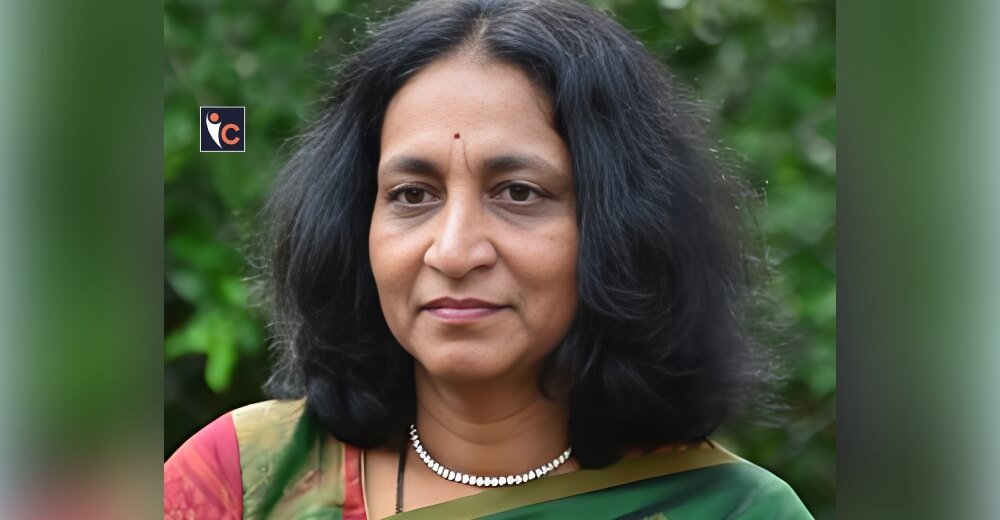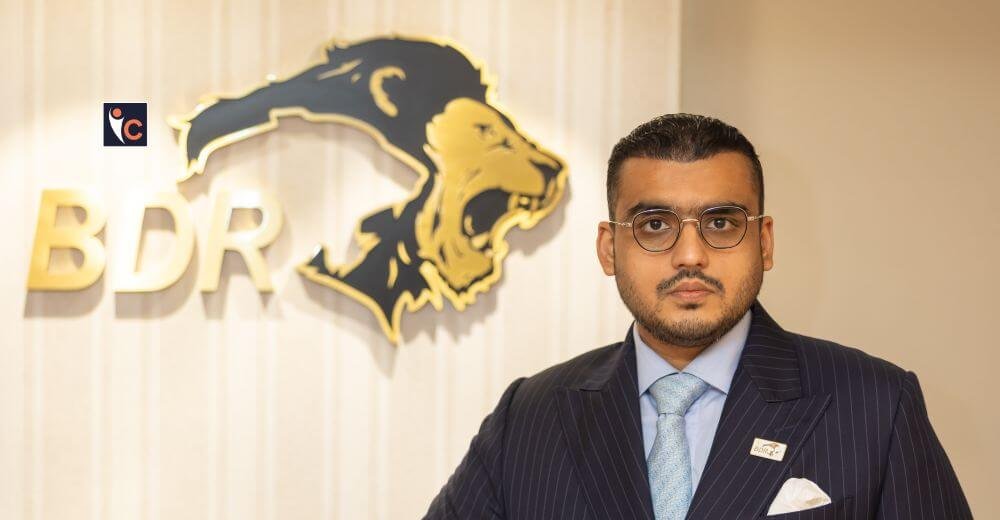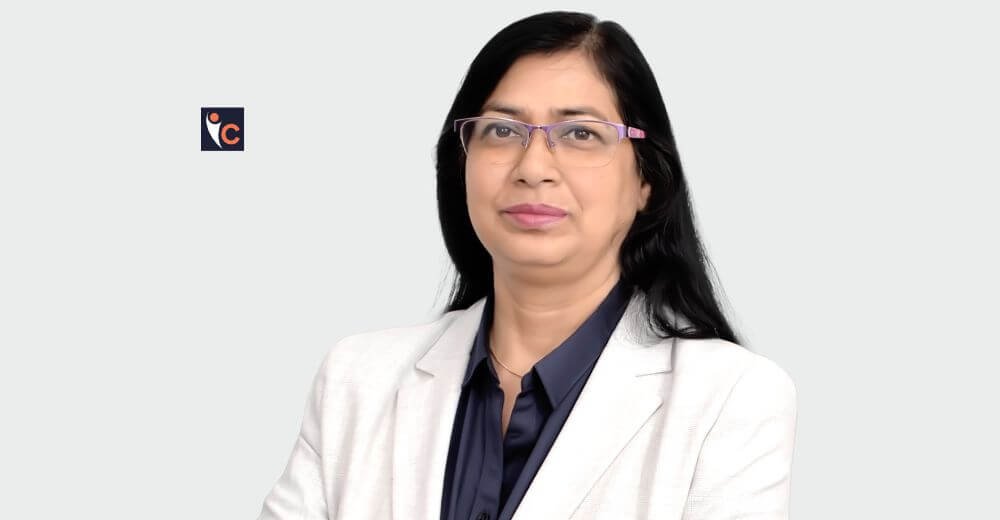With a fervent belief in harnessing existing systems and fostering collaborative efforts, Mridu Gupta has dedicated her career to instigating meaningful transformations in areas such as education and healthcare. While serving as CEO of CAPED, Mridu’s steady commitment to catalyzing change in the development sector has spanned nearly three decades.
Mridu’s journey began humbly, setting up an Institute for Speech and Hearing-Impaired Children in 1995 in Saharanpur, Uttar Pradesh. Over the years, she expanded her efforts, establishing roadside schools for underprivileged children and eventually founding the New Life Foundation, focusing on education and social welfare.
Tragically, Mridu’s personal experience with her mother’s battle with cancer ignited a new mission. In 2014, she pivoted towards cancer prevention, recognizing a critical gap in India’s healthcare landscape. With determination and collaboration, she spearheaded initiatives targeting women’s cancers, particularly cervical cancer.
As Mridu’s focus shifted entirely to the cancer space, her commitment to CAPED and cancer prevention has only intensified. Today, she stands as a beacon of change, tirelessly working to save lives and build a healthier future for generations to come.
Let’s uncover the captivating story of Mridu Gupta’s journey—where healthcare innovation, resilience, and authenticity converge to redefine the fight against cervical cancer and empower communities!
Motivation for Lasting Change
Mridu expresses a deep-seated commitment to creating momentum for the elimination of cervical cancer within her lifetime. At 54 years old, she acknowledges the likelihood that she may not witness this achievement in her country during her lifetime, but she is determined to lay the groundwork for future generations to live without the burden of this disease. Mridu’s motivation stems from the profound impact she has witnessed while studying cases of cervical cancer, particularly among disadvantaged women who suffer due to their socioeconomic status and lack of access to proper healthcare.
Driven by a personal sense of responsibility and a desire to effect lasting change, Mridu is resolute in her conviction that cervical cancer can be eradicated. She draws inspiration from observing progress in other countries and believes that with sufficient effort and momentum, her own country can overcome the complacency and stigma that hinder progress in this area.
For Mridu, this mission transcends mere altruism; it is a personal imperative to leave a legacy of impact and change. She understands the importance of setting clear goals and aspirations, declaring her intention to make a significant and tangible difference. By doing so, she believes she can unlock the potential within herself and others to bring about meaningful transformation.
Reinforcing Healthcare Systems
Mridu articulates CAPED’s straightforward yet powerful vision: a cervical cancer-free India. She emphasizes her unwavering commitment to achieving significant, transformative change rather than settling for incremental progress. Beyond the eradication of cervical cancer, her mission is deeply rooted in empowering marginalized women—the economically disadvantaged, the overlooked, and the voiceless.
Central to Mridu’s vision is the reinforcement of existing healthcare systems to ensure they are accessible and effective for all women, especially those who are often neglected or unable to advocate for themselves. She is willing to challenge and reform entrenched processes and policies, from the highest levels of government to grassroots community initiatives, to ensure that no woman is left behind.
CAPED’s approach spans multiple domains, from community outreach to corporate boardrooms and government agencies. Mridu emphasizes that CAPED is not limited to any single role but rather operates across various sectors with the ultimate goal of empowering every woman to take control of her own health decisions.
Mridu’s mission is clear: to empower even the most vulnerable women, enabling them to assert their rights and make informed choices about their health. This vision drives her organization’s efforts to create lasting change and ensure that every woman, regardless of her circumstances, has a voice and agency in her healthcare journey.
Community Collaboration
Mridu explains how CAPED operates within the framework of the government system to effectively reach communities and provide essential services. When entering a community, CAPED collaborates with local authorities such as the chief medical officer (CMO) and community health workers, known as ASHA workers. They obtain permission, provide training, and conduct screenings while empowering these workers to disseminate information within their communities.
Recognizing the cultural context, CAPED engages with men in the villages to educate them about women’s health and gain their support. This collaborative approach ensures that decisions about women’s health are made with the involvement of the entire community, including men, elders, and leaders. Building trust within the community is a critical aspect of CAPED’s work, and it takes time to establish relationships and foster behavior change.
Mridu highlights the importance of inclusive communication tailored to different audiences, whether at the government level, among community health workers, or within the village. This approach acknowledges the collaborative effort required for the well-being of women and highlights the need for support from all members of the community. Ultimately, CAPED views its work as a community project that involves building trust and fostering relationships to facilitate meaningful behavior change and improve women’s health outcomes.
Learning from Global Experts
Mridu shares how CAPED navigated the challenge of forging a path for cancer prevention in India by seeking guidance and expertise from global partners. Recognizing the absence of established frameworks for cancer prevention in India, CAPED reached out to organizations such as the American Cancer Society and the Center for Cervical Cancer Prevention in Australia. They sought advice, insights, and communication materials from these organizations, leveraging their experiences in other countries, particularly in Africa.
Collaboration with global partners allowed CAPED to adapt and localize global knowledge to suit India’s specific context. By working closely with organizations that had already conducted pilot projects and trials in similar settings, CAPED benefited from existing evidence and methodologies. These partnerships not only provided valuable support and education but also facilitated ongoing studies and evidence generation in India.
Since 2019, CAPED has actively engaged with global information and utilized the expertise of its international partners to develop India-centric approaches to cancer prevention. This collaborative approach has been instrumental in advancing CAPED’s mission and maximizing its impact by leveraging global knowledge and expertise while tailoring interventions to meet the needs of Indian communities.
Authenticity as a Core Value
Mridu emphasizes the importance of authenticity in leadership and organizational culture at CAPED. She believes in being transparent and authentic in all aspects of their work. This authenticity extends to acknowledging failures and being open about challenges faced in their projects. By fostering an environment where team members feel comfortable admitting mistakes and exploring alternative solutions, CAPED promotes a culture of honesty and growth.
Mridu highlights that authenticity is a core value at CAPED, and it guides their interactions and decision-making processes. They prioritize authenticity in their leadership approach and in their recruitment and development of team members. Individuals who demonstrate authenticity, integrity, and a willingness to work hard are valued and supported within the organization.
Mridu believes that authenticity is the foundation for success, emphasizing that genuine intentions and sincerity are essential for achieving their goals. In a nonprofit setting where financial metrics are not the primary focus, authenticity serves as their guiding principle, driving their efforts to make a meaningful impact in their community.
Flexibility in Action
Mridu explains how CAPED allows itself to pivot when faced with challenges or when original plans cannot be executed as expected. She provides an example of a project in Delhi that encountered obstacles due to the unstable political situation in the region. Despite their efforts to collaborate with the government and multiple meetings, they had to acknowledge that the project could not proceed as planned. In such situations, CAPED embraces authenticity and transparency, openly communicating with their partners about the need to restructure the project.
This willingness to pivot and redesign projects aligns with CAPED’s commitment to authenticity and achieving their goals while staying true to their core values. Mridu emphasizes that as long as the goals of their donor organizations and their core values are being met, they are open to redesigning and trying again. They have key performance indicators (KPIs) that measure quantitative outcomes, and while they strive to achieve these outcomes within the given budget and timeline, they also recognize that adjustments may be necessary at times.
CAPED’s approach reflects a pragmatic and adaptable mindset, where they remain dedicated to their mission while being flexible in their strategies and approaches to overcome challenges and setbacks.
Fight for Openness and Awareness
Mridu highlights the multitude of challenges faced in promoting preventive health in India, particularly concerning women’s health and cancer awareness. These challenges include societal complacency, stigma surrounding health issues like cancer, and the prevalent mindset of avoidance rather than proactive health management. She emphasizes the difficulty in changing entrenched attitudes and behaviors, especially regarding cancer, which carries significant stigma in Indian society.
Despite these obstacles, CAPED is actively engaged in various initiatives aimed at overcoming these challenges. They work at both the grassroots level and with the government to implement screening programs, vaccination campaigns, and policy changes. However, Mridu acknowledges the enormity of the task, stressing that if addressing cancer prevention were easy, it would have been accomplished by now.
One key aspect of their advocacy involves destigmatizing cancer and normalizing discussions around cancer prevention and screening. Mridu believes that creating a culture of openness and awareness surrounding cancer is crucial for effectively combating the disease. She advocates for the establishment of dedicated cancer prevention clinics and calls for a monumental shift in societal attitudes toward cancer prevention, likening it to addressing common health issues like flu or viral infections.
Mridu’s perspective underscores the importance of tackling deeply ingrained societal norms and advocating for systemic changes to effectively address public health challenges like cancer prevention in India.
Breaking Barriers
Mridu discusses CAPED’s initiative to decentralize cancer care in India by establishing cancer prevention and screening clinics at the community level. Currently, cancer care in India is primarily concentrated in super specialty cancer hospitals, leading to long waiting times for appointments and procedures. CAPED aims to address this issue by advocating for the decentralization of cancer care services, bringing them closer to the communities in need.
Their plan involves working with both state and central governments to implement this decentralization strategy. They envision establishing cancer prevention centers or oncology centers at various locations across the country to provide easier access to screening and preventive services. This initiative is a significant part of CAPED’s agenda for the coming years, with the goal of making substantial progress within the next five years.
In addition to decentralizing cancer care, CAPED continues to work on other initiatives, such as implementing district-level models for cancer prevention and collaborating with state and district governments. However, decentralizing cancer care remains a top priority for CAPED as they strive to improve access to essential cancer services for communities throughout India.
Preparing for Tomorrow
Mridu highlights the growing burden of cancer in India and the challenges it poses in terms of financing and funding for cancer care. With a large portion of the population either underinsured or not insured for cancer treatment, there is a pressing need to find cost-effective solutions to address the increasing demand for cancer care.
One solution Mridu proposes is to embrace digital health solutions, particularly for cancer prevention and screening. She emphasizes the importance of implementing digital AI-enabled screening mechanisms to enable population-based screening and make the process more efficient and cost-effective. By moving towards digitalization of cancer prevention, Mridu believes that India can better cope with the rising number of cancer cases and address the challenges posed by limited infrastructure and healthcare resources.
Mridu stresses the urgency of adopting digital health solutions today to prepare for the expected increase in cancer cases in the future. She advocates for introducing innovative digital health solutions and showcasing them at various forums to raise awareness and encourage adoption by healthcare providers and government agencies. Mridu sees digital health as the key solution to effectively manage the growing burden of cancer in India.
Corporate Responsibility
CAPED has undertaken various campaigns for cancer education, including social media initiatives like the “Save the Queen” campaign, which focused on women’s screenings, and “Theater for a Cause,” where plays were used as a platform for awareness. They’ve also planned a fashion show involving cancer patients to promote awareness through their voices and experiences. Corporate engagement campaigns such as “Be Your Own Hero” offer free talks and screenings for women in companies. Additionally, CAPED has implemented an ambassador program in schools and colleges, training students to raise awareness and funds for cancer prevention. These initiatives extend to rural areas as well, where workers are trained to educate women about cancer prevention. CAPED welcomes opportunities to conduct awareness sessions in various organizations and communities, as seen on their active social media presence.
Strength in Resilience
Mridu shared some impactful success stories from CAPED’s initiatives. One woman, named Lakshmi, was diagnosed with early-stage cervical cancer at a screening camp and underwent successful treatment. Inspired by her experience, she mobilized her village to participate in screening camps. Another elderly woman, diagnosed with breast cancer, received support through CAPED’s patient navigation program, which included accompanying her to appointments and providing emotional support. These stories demonstrate how small acts of support can significantly impact individuals’ lives. However, alongside these successes, Mridu also acknowledged the challenges and losses faced, such as women refusing treatment or facing delays due to various reasons, including lack of family support or financial constraints. Despite the difficulties, the team finds motivation in the success stories and remains committed to their mission.
Staying Motivated
Mridu finds continuous inspiration in the impactful stories she witnesses every day, as well as the challenges and gaps she identifies in the healthcare system. The combination of witnessing both the successes and the obstacles propels her forward, driving her to persist in her efforts to make a difference. This motivation extends to her team too, as she strives to keep them engaged and motivated in their work. Despite the constant demands and challenges, Mridu remains committed to her mission, fueled by the environment around her and the potential for positive change.
Global Recognition
Mridu reflects on significant milestones achieved by the organization over the past decade. One such milestone was being recognized and approached by the American Cancer Society, which marked a moment of validation for their efforts. Another proud achievement was being selected as one of only two organizations in India to represent the Cervical Cancer Action for Elimination Network formed by the World Health Organization (WHO) in response to the launch of the cervical cancer elimination program. This recognition on a global scale reaffirmed the importance and impact of CAPED’s work in India. Additionally, being invited to serve as the India partners for the APAC Women’s Cancer Coalition across six countries further underscored the organization’s growing influence and significance in the fight against women’s cancers. These achievements serve as proof of the dedication and impact of CAPED in healthcare and social impact.
Focused Messaging for Maximum Impact
Mridu outlines a skyrocketing goal for CAPED, aiming to establish a presence or partnership in every state of India within the next five years. This ambitious objective reflects the organization’s commitment to expanding its reach and ensuring that its mission of cancer prevention reaches across the entire country. Mridu emphasizes the importance of reaching at least 20% of the target population through these efforts, indicating a measurable milestone for the organization’s progress.
Regarding the scope of their work, Mridu emphasizes the importance of maintaining a focused message on cancer prevention to ensure maximum impact and effectiveness. While expanding outreach, she is cautious about diluting the messaging by adding new services, emphasizing the need for a singular, impactful message. She underscores that the primary focus will remain on cancer prevention until it becomes a sustainable model widely adopted by the government and the public.
Insights for Young Professionals
Mridu’s advice to young professionals entering the development sector or any aspect of healthcare emphasizes the importance of authenticity, trust, and a patient-centric approach. She highlights the prevalence of false advertisements and myths in the healthcare space and urges newcomers to work towards cleaning up and improving the healthcare system. Mridu advocates for a shift towards a more holistic healthcare model that focuses on keeping people healthy rather than just managing diseases. She encourages young professionals to prioritize authenticity, holistic understanding, and build trust in their work within the healthcare sector.
Read More: Click Here





